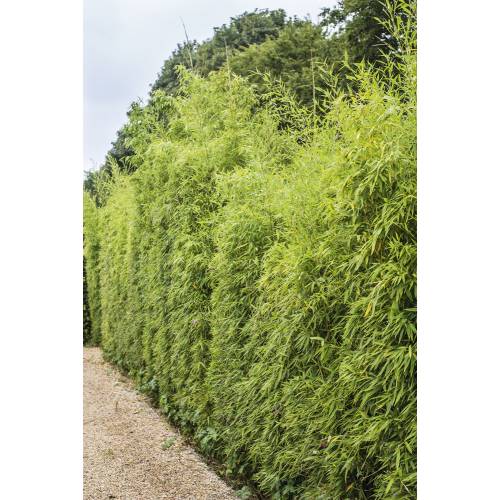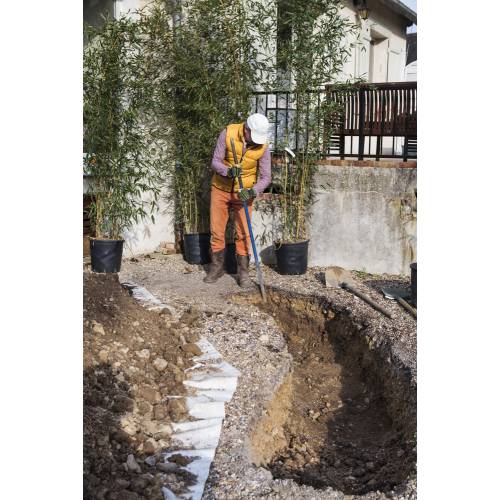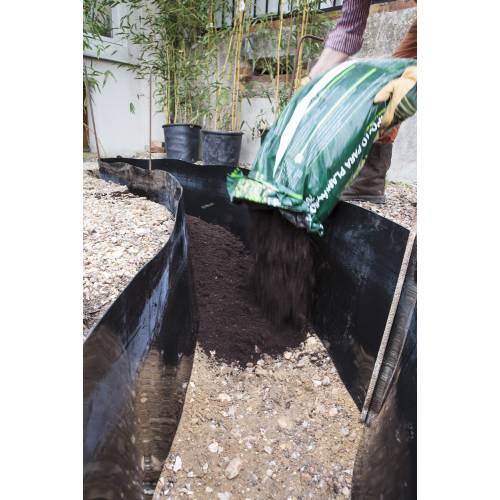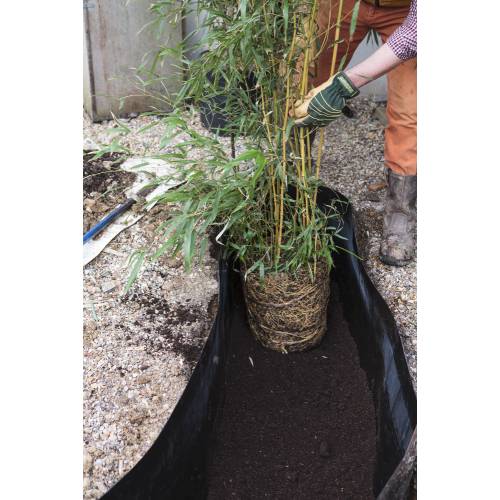
The growing of bamboo
Planting a hedge of bamboos
- Details
-
An elegant, evergreen screen: Bamboos suit extremely well hedges But they have to be controlled!
To create a Bamboo-based hedge, you must have a certain width available (at least 80 cm) as a Bamboos ‘curtain requires more space than classic hedges to form. With less space, the screen will be less opaque and will quickly run out of space.
The right varieties, in quantity
If the most widely used Bamboos, the Phyllostachys, are often used to create hedges, you can use other, more interesting varieties. Indeed the Phyllostachys has a tendency to form a less dense screen compare to the Pseusodasa and the Bashania for example. Some do not grow higher than 2 m, like the Sasa tsuboiana, which you won’t even need to prune! On the quantity side, plan for approximately one plant every 80 cm. The denser the plantation, the quicker the screen will form but the quicker it will also age.
In trenches
Delimit the hedge, starting to dig a trench of 60 cm deep at a minimum. The ideal is to dig up to 1 m but in that case you will require a mechanical digger to dig it. Form the trench with a width of 80 cm up to1.20 m. Place on the sides, up to the entire height, a layer of roots-stopper The bottom of the trench does not require any cover unless sensitive pipes are nearby.
Planting
Soak the Bamboos ’roots balls. During that time, fill the bottom of the trench with a rich soil, mixed with potting compost. The soil used must be not only rich but also free draining. Plant the specimens, cutting the pot if they have strong underground stems. Do not hesitate to bury the top of the earth-ball under 5 cm of soil to encourage regrowth. Water generously and add some more soil if it subsides after watering. Set up a watering system as Bamboos require water in order to form a dense, regular screen.
Which maintenance?
The tasks to do on a Bamboos’ hedge are rather reduced, which is a strong point fort for this type of hedge. Shorten the branches which spread out too much away from the screen, on the sides, according to the available space. As for the height, only one annual pruning is necessary, in June, after the formation of new stalks. A Bamboos’ hedge complies with neighbouring rules regarding distances to respect: If it sits less than de 2 m away from the boundary, you must limit its height to a maximum of 2 m.
A tip
If you grow a tall variety such as the Semiarundinaria fastuosa, plant a dwarf, roots-suckers-producing variety at its base which will be used as ground-covering. An impeccable finish ….and less work! - Photos (6)






